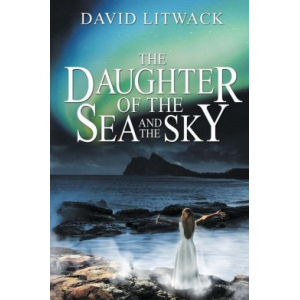Rosetta Press
🔗 http://rosettapress.blogspot.co.uk/2012/07/check-out-our-second-prize-winner.html- Author
- Book
- Story behind the book
- Media Links
- Reviews

Andrew R Welsh
About
Author, Science teacher and educational consultant.

Dead Burn
Description
<p>Terrified California residents face the shocking dilemma of yet another serial killer roaming freely in their neighborhoods. However, this time it is an evolving serial killer anomaly that relentlessly searches for, hunts down, and ingeniously traps his victims before unleashing his fiery rage. Always two steps ahead of the cops and fire investigators, the killer hones in on the next sinful target leaving a trail of bones and ashes behind as evidence. It rocks the criminal justice system to the core as a string of arson murders hits inside their turf.</p><p>Vigilante detective Emily Stone hunts serial killers and child abductors, covertly and under the law enforcement radar, with her intrinsic skills of criminal profiling and forensic investigation. With Stone’s toughest case yet, the arson serial killer immediately crosses her radar and sends her into the dark territory of a lethal pyromaniac’s mind – to the point of no return.</p><p>While following the clues of the relentless firebomber, Stone grabs the attention of a government anti-terrorist organization called GATE that oversees all law enforcement cases across the U.S., which now focuses their sights on her proven abilities. They have very specific plans for her, whether she likes it or not.</p><p>Everything teeters on the edge of reality, as Stone must battle for her life between a hired assassin and an arson serial killer. Lines are drawn on both sides of the law. Friendships and lovers are tested.</p>
Story Behind The Book
York 1990. It was at a St. Johns’ College Rowing Club meal at The Merchant Venturers’ Hall, that my imagination was fired. What was the Company of Merchant Venturers? They were merchants who went on voyages around northern Europe to buy and sell cargoes, bringing back to York these exotic goods – such as furs. A venture was a risk. They were taking risks. It’s where we get the term venture capital today. Someone puts this money at risk by investing in a new idea. Their coat of arms carries the motto “Dieu nous donne bonne aventure,” which I have since thought of as something one can live by, “God, give us good fortune”, or as I mistranslated it, “God, give us a good adventure!” The idea of placing one’s savings and wealth into a voyage and setting off at the mercy of the elements seemed to be incredibly brave. Anyone going off to sea is very brave in my opinion. I wanted to write a story that reflected the unpredictability of the sea.
Media Links
Reviews
<p>Check out our second prize winner!<br /> As you all know, the second prize winner of the Rosetta Literary Contest was Mr. Andrew Welsh. He is the author of many titles such as:<br /> White Sands, Green Trees<br /> Teaching Overseas - A Short Guide<br /> and Any Means to an End<br /> Any means to an End is the prequel to Protective Craft, the book we proofread and designed the cover for.<br /> We enjoyed deeply working with Mr. Welsh throughout the whole process and were very proud of our final product! His writing was delightful to proofread and we believe we managed to maintain the continuity with the series in the book cover we designed for him.<br /> If you would like to find out more about his work check out: http://anymeanstoanend.blogspot.com/<br /> and you can also check out his Facebook page to find out more about himself: https://www.facebook.com/AnyMeansToAnEnd<br /> All his books can be found in both Pinterest and Amazon.<br /> </p> <p> </p> <p> </p>






